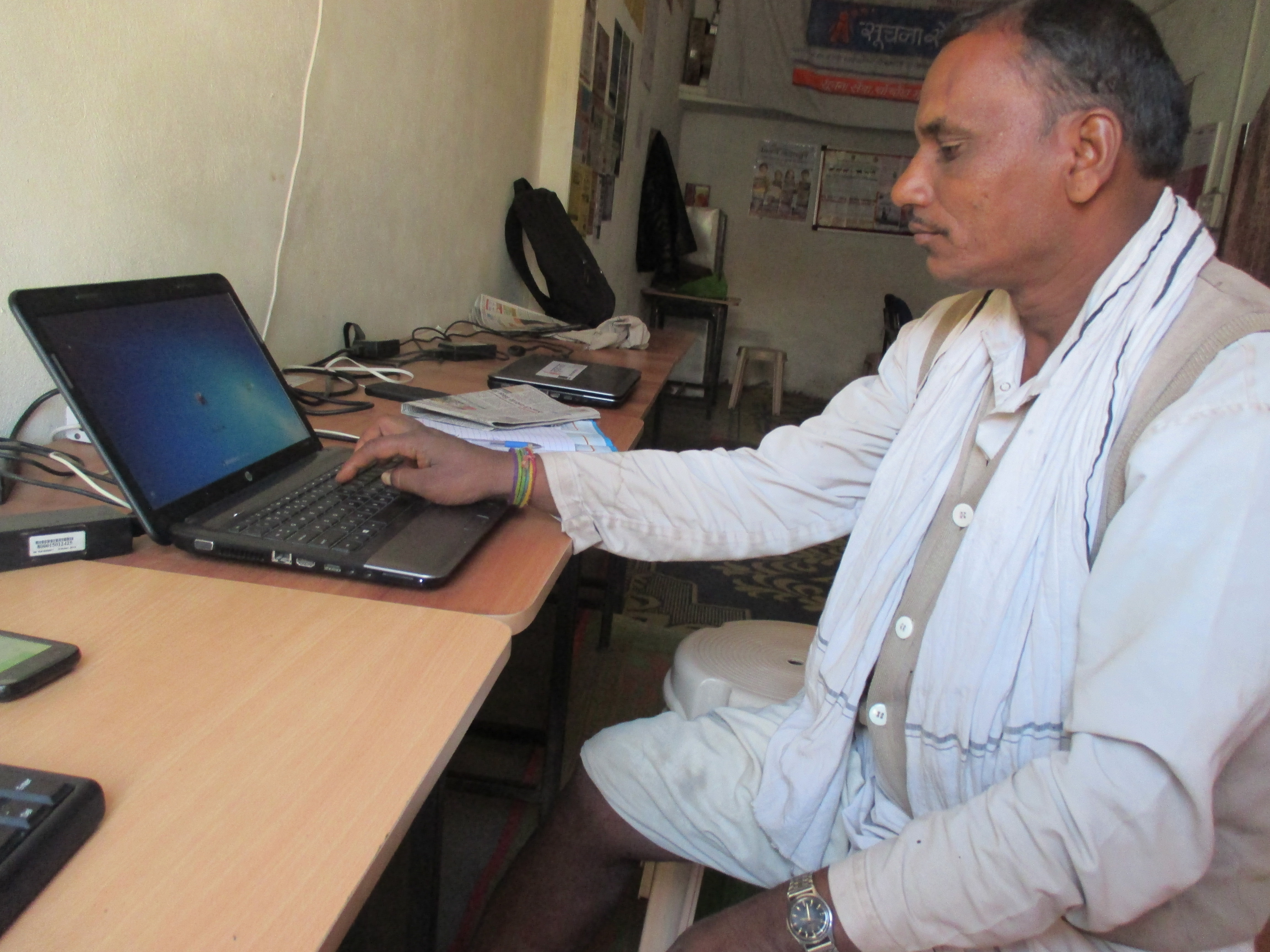
This is the story of an Indian tribal man and the onset of a thirst for learning in him as a result of the nudge given by the Soochna Seva team. The story revolves around 40-year-old Bharat Singh Bheel (son of Gyan Singh Bheel) who could only study till Grade VIII but had passed with middle class division. Bheel has four children and owns 40 to 50 acres of land. Though his wife is an anganwadi worker, it’s actually him who carries out all the anganwadi duties.
One day, the local Soochna Seva team was hosting a combined meeting of the School Management Council/the Health Council and the Prasphutan Council in Meriyakhedi Khurd, an administrative subdivision of the Chittorgarh district of Rajasthan. Bharat Singh Bheel, who was present at the meeting, commented, “All these councils are just for the namesake. None of the councils are actually working, and whatever monetary funds are granted to them cannot ever be tracked. None of them have any sense of responsibility!”
Adding to Bharat Singh Bheel’s comment, a Soochan Sevak threw a question at the council members, “Are you people aware of your responsibilities? Do you know what power you are vested with?”
Bharat Singh Bheel replied, “Sir, our responsibilities are to monitor the school and to verify — twice or thrice a week — whether the teachers are delivering their responsibilities well or not. We also have the responsibility to ensure that the students are attending classes, whether or not the mid-day meal is being served and to check if there is proper supply of water, among other responsibilities.”
The day after, Bharat Singh Bheel, while monitoring the middle and primary sections, went to the headmaster Beeram Bheel’s office and greeted him in the local dialect, “Ram Ram Shyam Shyam!”
“Sir, I just learnt that I am a member of a council. I was not even aware of that. May I know who the other members of the school management council are?” he asked
The question touched the heart of the headmaster as he himself was a member of this council and was saddened by the fact that other members were not even aware that they belonged to a council. Immediately after, educator Niranjan Meena called Naval Kushwaha, a Soochna Seva team member, and accused him of “instigating the villagers against us” despite the respect they were receiving from the teachers.
The Soochna Sevak politely responded, “We do not wish to instigate anyone, we just aim to create awareness and accelerate the growth of the councils in a positive manner. Is that a crime, sir? Definitely not!” The reply seemed to calm the educator down, and he then revealed that at the time of the constitution of the councils, no one turned up. So, reluctantly, people’s names had to be put in the council without their consent.
On another occasion, the same Soochna Sevak was working on the issue of a ration dealer who had refused to distribute ration to villagers in the absence of relevant documents as the administration had amended the rules (but the villagers were unaware of the same). While Kushwa was busy working on his laptop, Bheel turned up and asked the sevak what he was doing.
“Why don’t you see for yourself and learn? It will prove useful in the long run,” the sevak suggested Bheel who was fascinated by the laptop, giving rise to his newfound thirst for knowledge.
To keep alive Bheel’ fascination and inquisitiveness, the sevak guided him dramatically, “Press this bright shining silver button, and see the magic. Get ready to immerse yourself in the reservoir of knowledge, which is waiting to be discovered by you and for you.”
This is the story of a positive impact, among hundreds of others, that the Soochna Seva Project is making. It has been dedicated towards sowing the ‘seeds of hunger for knowledge’ and, thus, changing the dynamics of our remote Indian villages.







